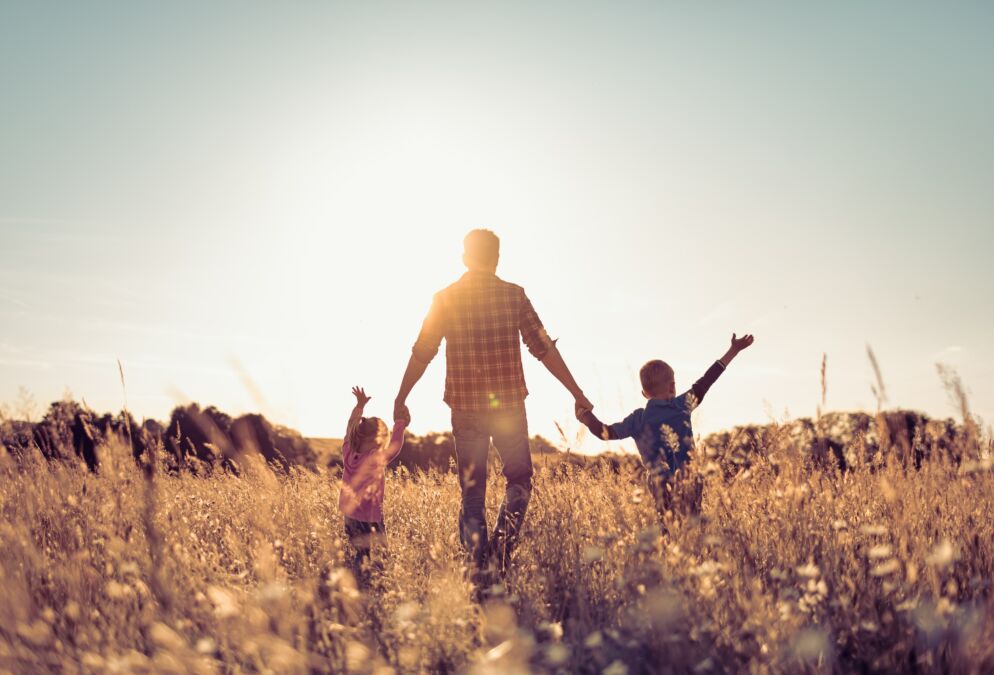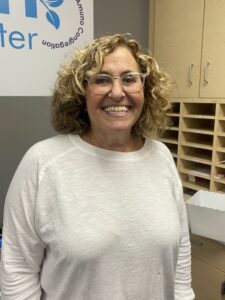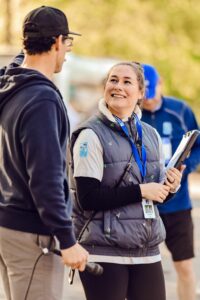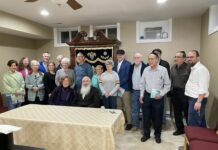
Yom Kippur is one of the most important holidays on the Hebrew calendar. It’s a day of atoning for past sins, where many Jewish people fast and spend the day praying in synagogue. Eating and drinking are forbidden, as well as wearing leather shoes and putting on lotion.
Observing Yom Kippur traditions is an important part of the holiday. But many of the traditions most closely associated with Yom Kippur are not so easy for the littlest members of families. Children cannot fast the same way adults can, and they may not be able to spend all day sitting still in a synagogue.
So how can parents involve children in the holiday, especially if they cannot fast?

Outright fasting may be off the table, but children can still forgo treats as part of Yom Kippur. Michelle Gold, director of Goldsmith Early Childhood Center of Chizuk Amuno Congregation, suggests that parents feed their children breakfast and lunch on Yom Kippur, but avoid snacks and sugary treats. Then, the whole family can sit down for dinner when the adults’ fast is over. Explaining to children why they are doing this is key, Gold said.
“Explain to them that mommy and daddy fast, and that today is a very special holiday,” Gold said. “That they’re just going to eat breakfast and lunch, and then they’ll all eat dinner together.”
Another suggestion she had for a Yom Kippur-related activity that the whole family can do together is tashlich, a ritual meant to cast off sins into the water. It typically involves throwing breadcrumbs or pebbles into a lake or stream, though Gold said she has performed tashlich with a baby pool in the past. Tashlich is more commonly performed on Rosh Hashanah, but it can be practiced up until Hoshana Rabbah, this year on Oct. 6.
Rabbi Ariel Platt, the director of J Life at the JCC of Greater Baltimore, has also organized a tashlich walk geared toward younger children and their families.
This tashlich walk program will take place on Sept. 24 at 1 p.m. at the Rosenbloom Owings Mills JCC.

“During this tashlich walk, I’m having the kids think about some of the bad choices they’ve made and what will happen afterwards,” she said. “To tie it to Yom Kippur, we take it a step further, because Yom Kippur is about making up for your choices and their consequences. It’s about more than saying sorry.”
In a blog post she wrote about the subject for the JCC in 2022, Platt also suggests framing Yom Kippur as “I’m Sorry Day.” While atonement may be a weighty concept for children to understand, they have a grasp of their ability to make choices and the consequences those choices may have. Yom Kippur presents an opportunity for parents to teach their children about accountability and forgiveness, and Platt suggests taking the time to discuss this with your children or act out scenarios with them.
“Sometimes, when you tell a kid to say they’re sorry, they don’t actually mean anything. Even adults sometimes say that without meaning it. Yom Kippur is about understanding your mistakes and making up for them,” Platt said.
Children’s services for the High Holidays are common. While they may not be as extensive as traditional Yom Kippur services, attending them as a family can create the foundation for Jewish family traditions later down the line.
“We spend the longest time in shul on Yom Kippur, and attending a service helps them understand that,” Gold said. “For many young families, their children are their entryways into Judaism. Sometimes, parents gain their knowledge from what children bring home from preschool or religious school. As simple as they may be, the most important thing to do when doing holiday traditions is to do them with your children. It creates a family experience.”
But one of the most important ways to involve children in Yom Kippur is explaining the holiday to them, demystifying it and giving them a better understanding of its importance.
The holiday’s focus on atonement and forgiveness is something that people of all ages can understand if they are given the tools to do so, and approaching children on their level about it can give them a greater appreciation for Yom Kippur.
“We’re all role models for our kids,” Platt said. “They see us doing things, and it’s important to explain as best you can why you do the things you do in the best way you can.”







